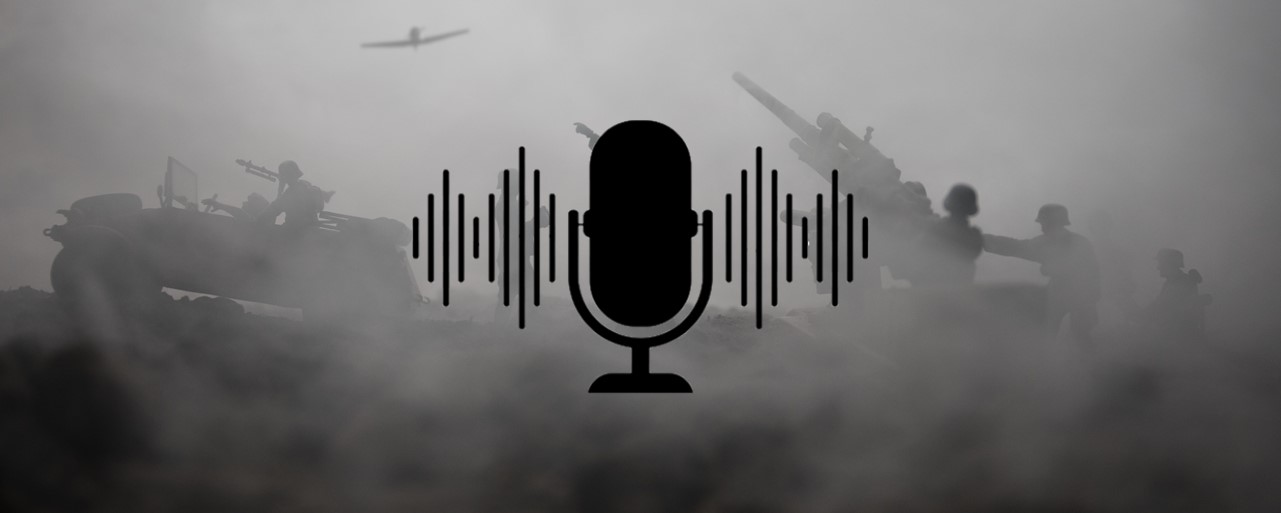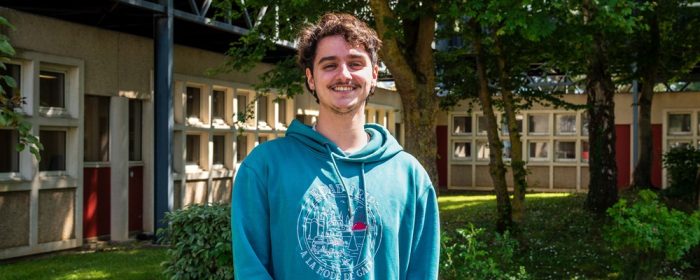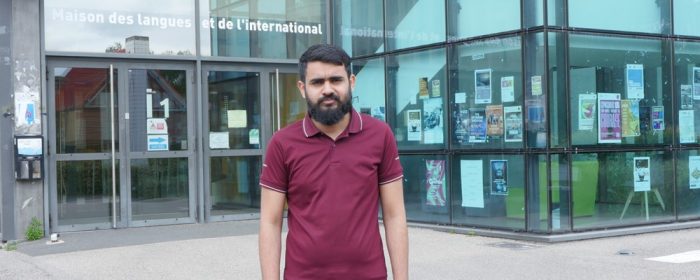Two PhD students in contemporary history from the HisTeMé laboratory (UR 7455), Charlotte Barnabé and Guillaume Yverneau, have created Plumes de doctorant.es, a podcast dedicated to current research around the Second World War. Through in-depth interviews with specialists, they explore various aspects of this historical period, offering a fresh perspective and rekindling listeners’ interest.
Why did you choose the podcast format ?
We started out writing articles for the research blog of our HisTeMé laboratory, but then we said to ourselves: why not offer them in podcast form, as it’s a contemporary format. Podcasts also enabled us to meet new people, enrich our own research and culture, discover new methodologies and so on. Initially, we aimed mainly at doctoral students, but our audience has broadened with this new format.
The idea of the podcast is to share new research on the Second World War. Our aim was to make a selection and highlight original research questions and debates that are driving current research.
What are the steps involved in creating an episode ?
To choose the subjects, we often wander around bookstores, looking at books that have just come out. There’s also a subjective aspect: sometimes certain subjects appeal to us more than others. Then we get in touch with the historian, and most of the time they respond favorably, which is great, especially as our podcast is not very well known. We set up an appointment for the interview, which usually lasts an hour. After that, we divide our time between editing, publishing and communicating on social networks. So far, we’ve been lucky enough to welcome renowned historians such as Julie Le Gac, Nicolas Patin, Anthony Guyon, Morgane Barey, Ludivine Broch and Stéphane Simonnet.
What remains to be discovered about the history of the Second World War ?
There’s still a lot to discover about the Second World War ! Sometimes, certain subjects are revisited – rediscovered, but from other angles. This also ties in with the idea of the podcast, which is to approach well-known subjects from new angles and with new approaches. History is at the crossroads of the social sciences: we draw a lot of our inspiration from contemporary concepts in sociology and anthropology, which we take up and apply. As a result, we’re able to update a subject often enough, and see it from different angles.
Which episodes would you recommend to get you started ?
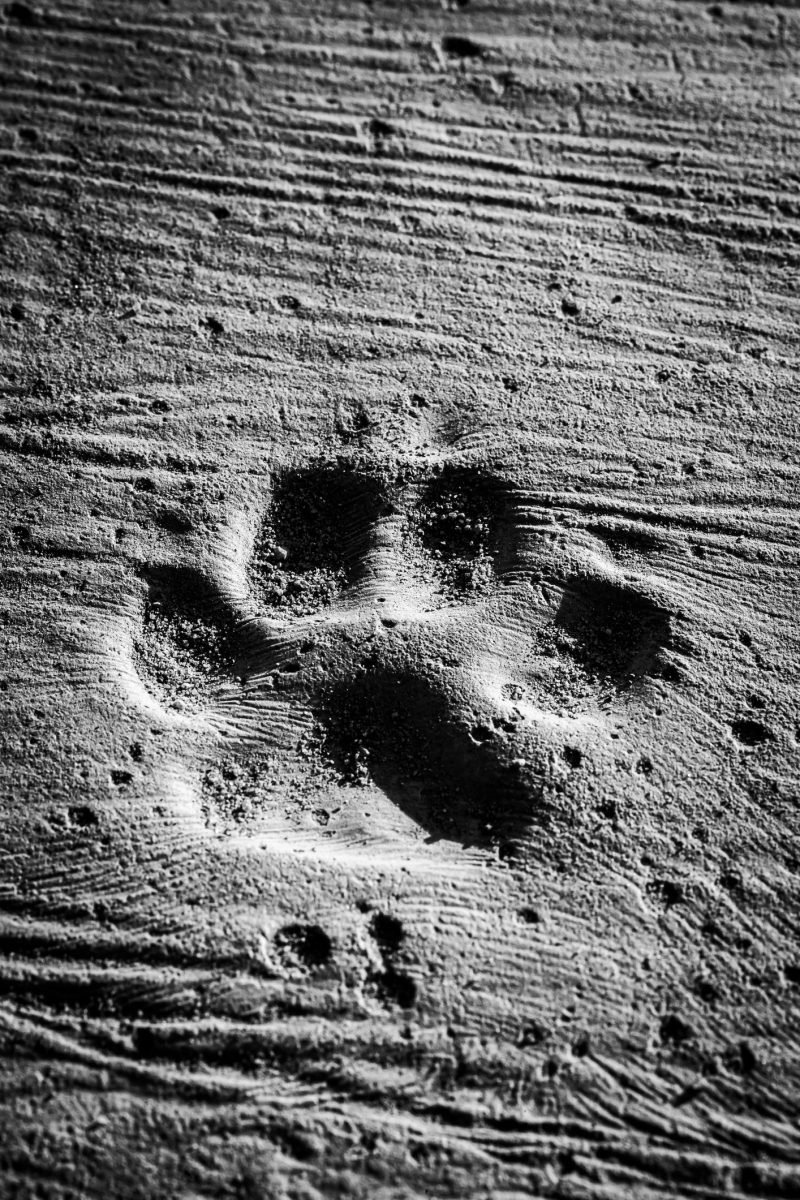
Listen to the 4th Animals at War podcast – with animal history specialist Eric Baratay ! He discusses the place of animals in 20th-century conflicts, from the First World War to the present day, and their role in armies over the years. The interview also sheds light on how the historian tries to adopt the animal point of view. It’s an accessible subject, and animals interest everyone.
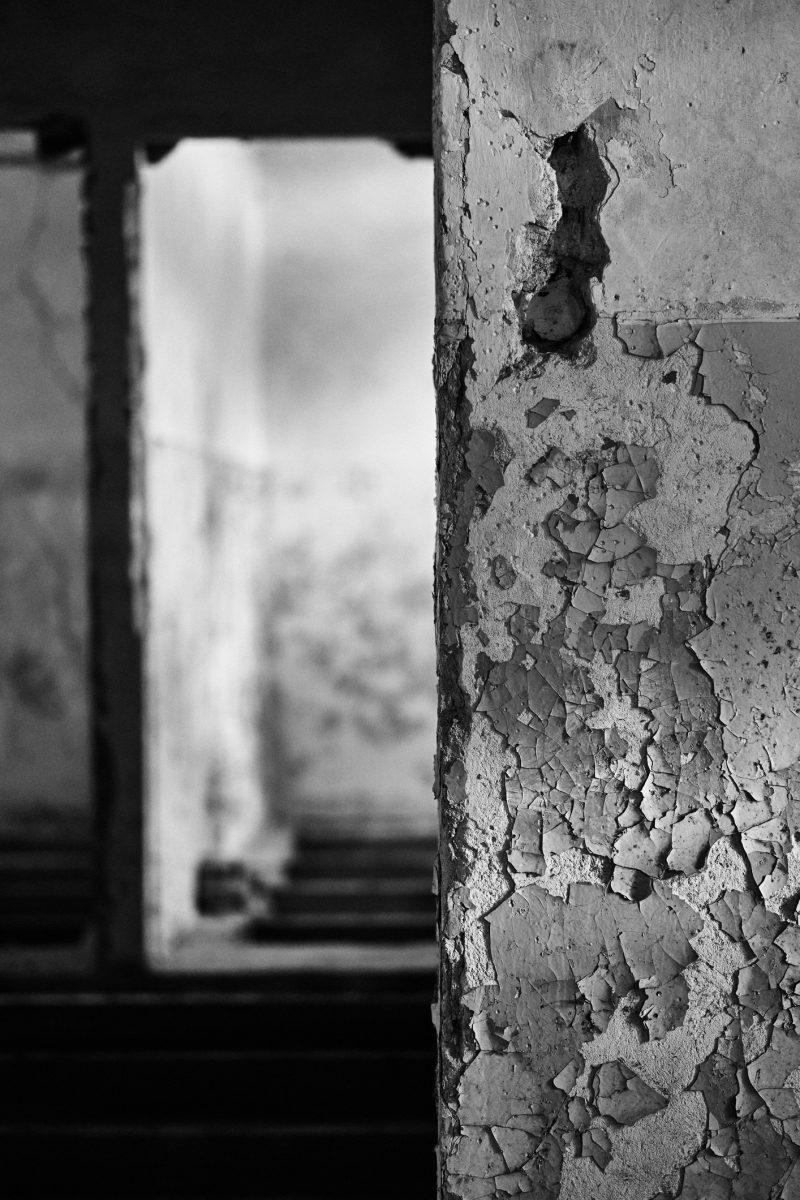
The 2nd podcast Urbex et guerres – with historian Nicolas Offenstadt is a slightly different podcast. He draws a link between our time and the Second World War through urban exploration (urbex). From the ridges of 1914-1918 to the GDR’s civil defense school, via former Luftwaffe premises, the podcast brings to light abandoned places that are witnesses to the past. Urban exploration allows us to discover the traces left by the actors and actresses of this historic period.
Any plans for the future?
At the moment, eight episodes have been published and another is being edited. Recently, we put online An Intimate History of Nazism – with Elissa Mailänder, which deals with the Nazi regime’s control over the intimate lives of the German population.
The podcasts have about a hundred listens each, which isn’t a huge number, but given that the subjects covered are fairly specific, our audience is naturally small. However, we have received positive feedback from friends and colleagues, which encourages us to keep going.
Our audience isn’t very large yet. When we made the first episode, we weren’t sure we wanted to continue. But we quickly realized that we liked it and that people around us liked it too. Our aim is to release one episode a month, and we’re determined to keep going and maintain our dynamic as a team !
Focus on Charlotte and Guillaume
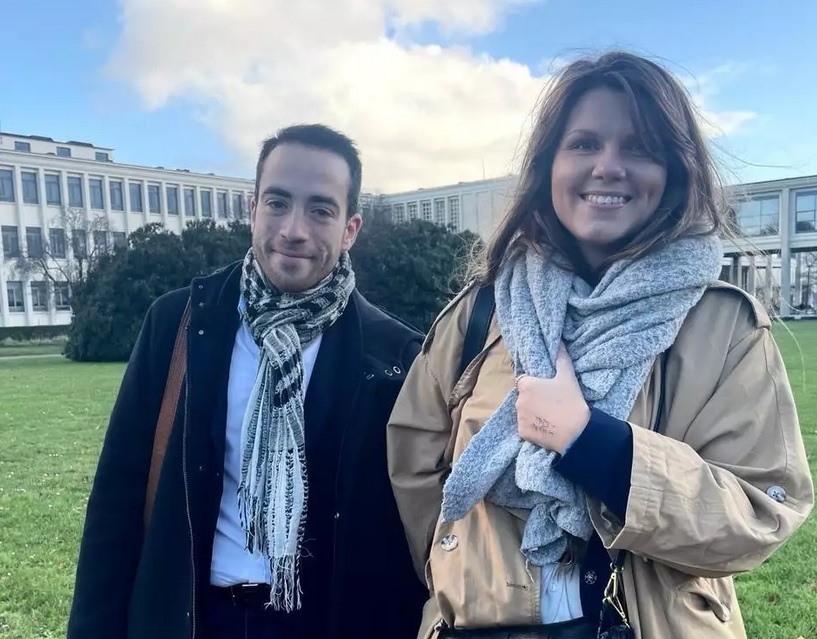
Before pursuing their doctorate, Charlotte and Guillaume both obtained a Bachelor’s degree in History, followed by a Master’s degree in History at the University of Caen Normandie.
Today, Charlotte is in the third year of her PhD, under the supervision of François Rouquet. She is focusing on the impact of wartime events on individuals, studying the intimate relationships between German occupiers and French women during the Occupation and the Liberation. She analyzes the complexity of correspondence, sentimental relationships and sexual violence, exploring notions of constraint and power relations.
Guillaume is in the second year of his doctorate, also under the supervision of François Rouquet and Hanna Diamond, at Cardiff University in the UK. His thesis focuses on the interactions between the liberation forces and the civilian population in France and Belgium from summer 1944 onwards. He examines the specific relationships between the military and civilians in the context of the Liberation, addressing perspectives such as history from below, gender history, social history and military history.
To listen
To listen to all episodes of the podcast, visit Plumes de doctorant.es. You can also find all episodes of the podcast on the listening platforms Deezer, iTunes, Spotify, etc. For the latest news, follow Charlotte and Guillaume on social networks (Twitter and Instagram).



